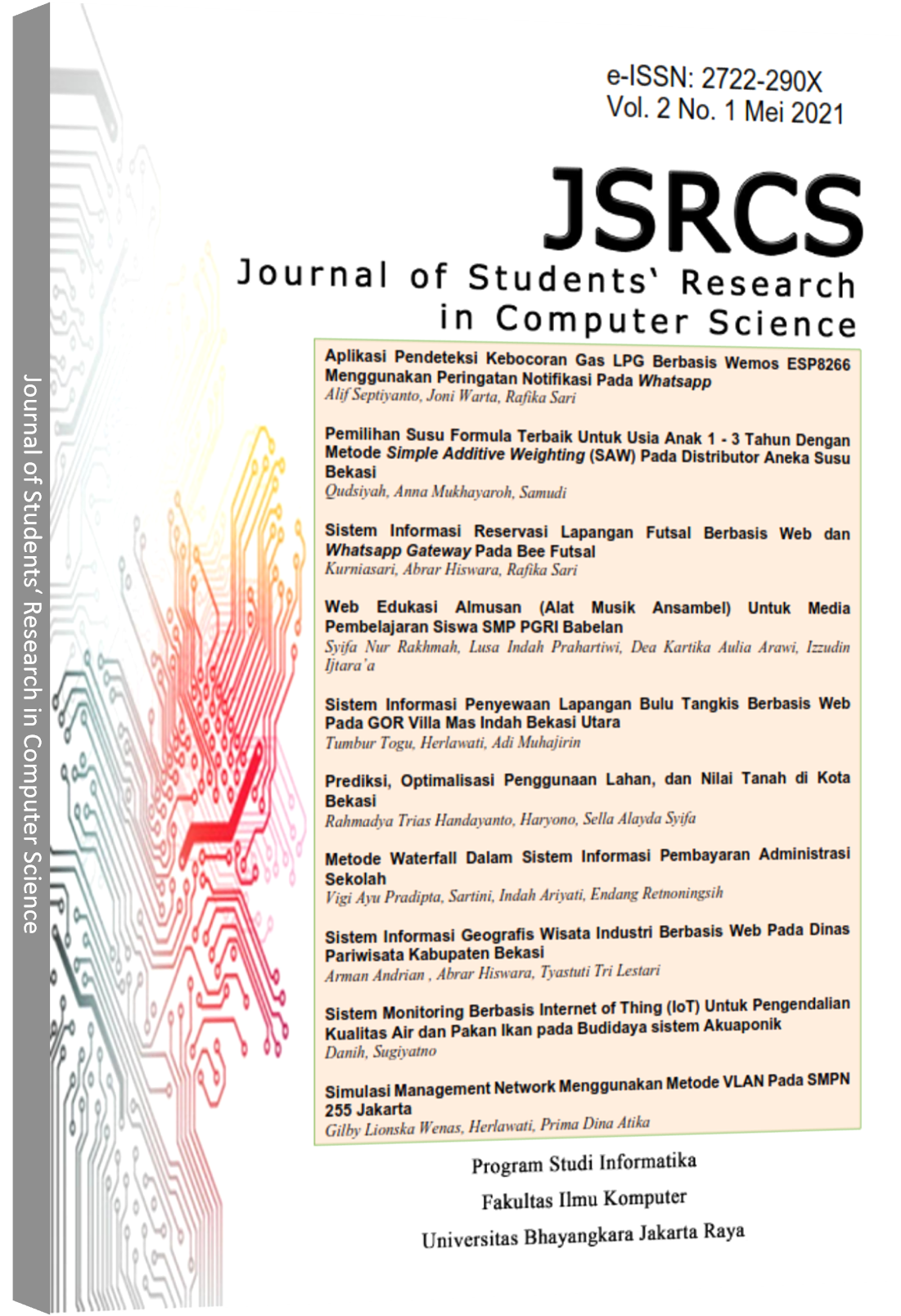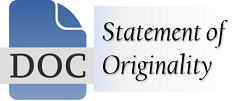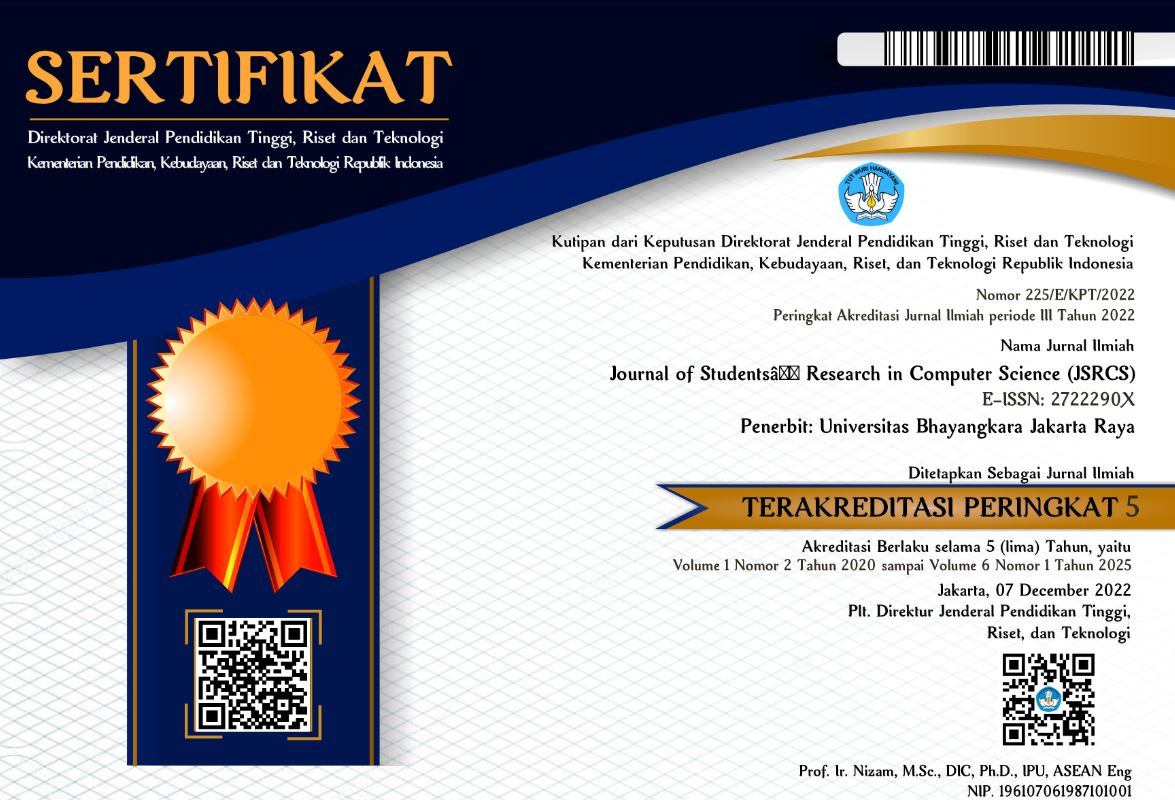Algoritma K-Means Clustering Untuk Rekomendasi Pemberian Beasiswa Bagi Siswa Berprestasi
DOI:
https://doi.org/10.31599/jdy9g441Keywords:
K-Means Clustering Algorithm, Scholarship Award, StudentAbstract
Scholarships are given to underprivileged students or outstanding students through a selection involving certain criteria. The criteria include the average value of report cards, parents' income, distance from home to school, number of dependents of parents, condition of the house, and status of the house. This study aims to assist the selection team in determining the award of scholarships so that they can provide appropriate and inappropriate recommendations, taking into account 6 criteria. The problem is that the existing scholarships are only given to students who do not have a father. The K-Means Clustering Algorithm can help Cluster students who are not eligible and eligible to get scholarship recommendations. The dataset used was 145 instances from the MAS scholarship selection committee. Attaqwa 02 Babylon. The data is calculated and tested using the K-Means Clustering algorithm. The results of the test were 32 people were recommended as eligible and 113 people were not eligible. The K-Means Clustering Algorithm can help the selection team to determine the scholarship award.












_-_Copy1.jpg)

